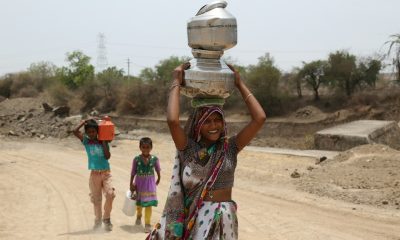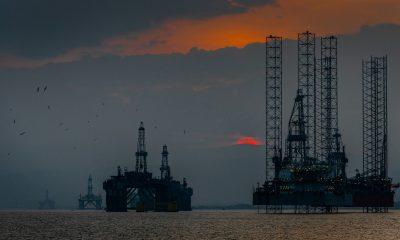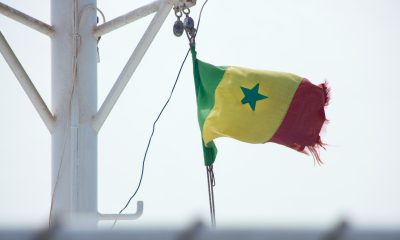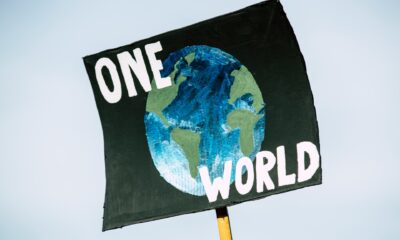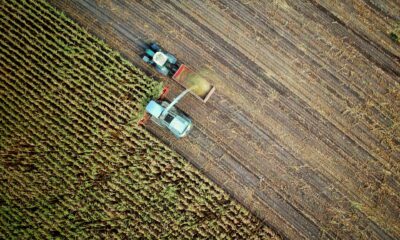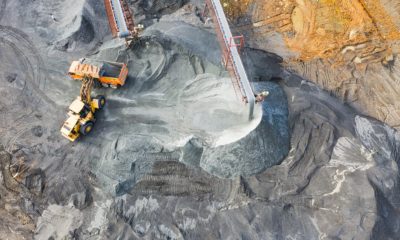Africa
Côte d’Ivoire Emerges as West Africa’s Leading Extractive Power
Côte d’Ivoire is transforming into West Africa’s top extractive hub, driven by major gold, oil, and critical metal discoveries. Landmark projects like Doropo, Koné, and Baleine boost jobs, revenues, and energy independence. Regulatory reforms, foreign investment, and local participation underpin ambitions to reach 6% of GDP by 2025 and become a regional mining power.
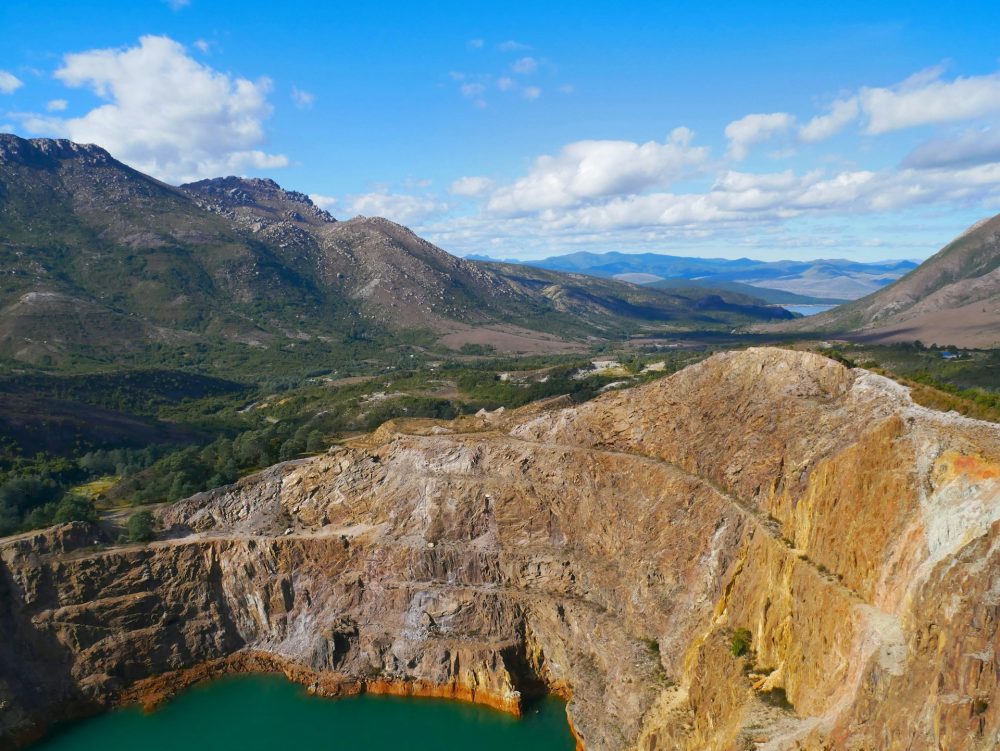
In recent years, Côte d’Ivoire has established itself as one of Africa’s most dynamic countries in the extractive sector. The country has made numerous discoveries of large deposits, attracted increasing foreign investment, and strengthened its regulatory framework to stimulate exploration.
While gold and oil remain the driving forces of the sector in Africa, the rise of critical metals such as cobalt, nickel, copper, coltan, and manganese is ushering in a new phase of strategic diversification. These advances mark a turning point in the national strategy, which aims to reduce dependence on traditional sectors, particularly agricultural ones.
Strategic discoveries for a change of scale
Recent years have been marked by major discoveries. In June 2025, Australian company Resolute Mining announced the discovery of a 100-ton gold deposit in Doropo, in the northeast of the country. The planned investment of 300 billion CFA francs is expected to generate nearly 3,000 jobs and tax benefits equivalent to the same amount for the first phase of the project, which is scheduled to begin work in 2026.
In May 2024, the Koné project, located in the Kani and Dianra departments, confirmed the discovery of the country’s largest gold deposit, estimated at 155.5 tonnes of reserves. This site will become the third largest mine in West Africa when it begins production in 2027, with a projected operating life of twenty years.
At the same time, exploration for strategic metals is accelerating. In 2025, Sodemi, in partnership with a Chinese investor, identified the first economically exploitable coltan deposit in Issia, marking Côte d’Ivoire’s entry into the production of this key mineral for the electronics industry.
On the oil front, the momentum is just as notable. The Baleine offshore field, discovered in 2021 by the Italian group Eni in partnership with Petroci, began production in August 2023 and has already reached 60,000 barrels per day. The national objective is to increase this production to 200,000 barrels per day by 2027 thanks to the simultaneous development of Baleine and Calao, discovered in 2024. These fields are also expected to produce up to 85 million cubic feet of natural gas per day, reducing imports and strengthening the country’s energy independence.
The most attractive mining jurisdiction in West Africa
According to the Fraser Institute, Côte d’Ivoire is now considered the most attractive mining jurisdiction in West Africa. This positioning is the result of a proactive government strategy, centered around the reform of the mining code, the allocation of new permits, and the strengthening of the fight against illegal gold mining.
In 2023, the country produced nearly 55 tons of gold and issued 189 exploration permits. These authorizations, granted to local and international companies, now cover a wide range of strategic metals, meeting the growing needs of the global battery, renewable energy, and advanced technology industries.
Improving the competitiveness of Ivorian businesses
The incentives put in place, combined with increased dialogue with local communities, have attracted significant international capital while encouraging the participation of Ivorian companies in projects. In the oil sector, promoting local content has become a priority. In March 2025, the Association of Oil and Gas Services Companies of Côte d’Ivoire signed a memorandum of understanding with the Africa Energy Investment Corporation to facilitate access to financing and strengthen the competitiveness of national players.
The mining sector is benefiting from a similar dynamic: exploration programs for coltan, copper and nickel, led by players such as Switch Metals and Parnassa Invest, now include objectives of skills transfer and structuring a local value chain, so that exploitation is not limited to raw exports.
These efforts have also resulted in increased support from international institutions. Côte d’Ivoire is among the top beneficiaries of OPEC Fund financing, with nearly €85 million mobilized for the private sector, including €35 million for SMEs.
Concrete economic and social benefits in West Africa
Next-generation extractive projects go beyond simply exporting raw materials: they create jobs, contribute to the national budget, and finance infrastructure. Local mining development committees have seen their investments increase from 2.6 billion CFA francs in 2017 to 5.6 billion in 2022, enabling the construction of schools, health centers, and drinking water access projects.
In Doropo, local authorities hope the future mine will help reduce unemployment and divert young people from the informal economy, while addressing social and security challenges. In the oil sector, the development of the Baleine field should quickly surpass the current electricity coverage rate of 87%.
The authorities’ stated objective is to increase the mining sector’s contribution to 6% of GDP by the end of 2025, thanks to increased gold production to 65 tonnes per year. At the same time, the new oil production capacity should provide the state with additional resources to finance its infrastructure and reduce its public debt.
Towards a regional extractive power
For the government, these developments reflect a clear ambition: to make Côte d’Ivoire a key extractive power in Africa. The integration of critical metals into this strategy illustrates the desire to anticipate major global industrial changes.
While recent discoveries confirm the sector’s upward trajectory, challenges remain: continued economic diversification remains essential to prevent excessive dependence on raw materials from exposing the country to volatile market cycles. Furthermore, upcoming elections will need to preserve investor confidence and maintain the attractiveness that currently characterizes the Ivorian economy.
__
(Featured image by Donovan Simpkin via Unsplash)
DISCLAIMER: This article was written by a third party contributor and does not reflect the opinion of Born2Invest, its management, staff or its associates. Please review our disclaimer for more information.
This article may include forward-looking statements. These forward-looking statements generally are identified by the words “believe,” “project,” “estimate,” “become,” “plan,” “will,” and similar expressions. These forward-looking statements involve known and unknown risks as well as uncertainties, including those discussed in the following cautionary statements and elsewhere in this article and on this site. Although the Company may believe that its expectations are based on reasonable assumptions, the actual results that the Company may achieve may differ materially from any forward-looking statements, which reflect the opinions of the management of the Company only as of the date hereof. Additionally, please make sure to read these important disclosures.
First published in Financial Afrik. A third-party contributor translated and adapted the article from the original. In case of discrepancy, the original will prevail.
Although we made reasonable efforts to provide accurate translations, some parts may be incorrect. Born2Invest assumes no responsibility for errors, omissions or ambiguities in the translations provided on this website. Any person or entity relying on translated content does so at their own risk. Born2Invest is not responsible for losses caused by such reliance on the accuracy or reliability of translated information. If you wish to report an error or inaccuracy in the translation, we encourage you to contact us.

-

 Biotech1 week ago
Biotech1 week agoNew Molecular Clues Explain Aggressive Neuroblastoma and Point to Targeted Treatments
-

 Fintech7 days ago
Fintech7 days agoSwissHacks 2026 to Launch Inaugural Swiss FinTech Week in Zurich
-

 Impact Investing2 weeks ago
Impact Investing2 weeks agoClimate Losses Drive New Risk Training in Agriculture Led by Cineas and Asnacodi Italia
-

 Cannabis2 days ago
Cannabis2 days agoColombia Moves to Finalize Medicinal Cannabis Regulations by March
